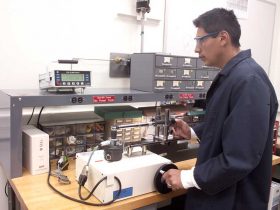A center for children is an essential community resource that provides services and programs to support the growth and development of children’s early childhood education through after-school programs, these centers offer a safe and nurturing environment where children play and explore.
Early childhood is a critical period in a child’s life are developing cognitive and physical skills that are shaping their future. They provide access to high-quality early education programs that are designed to support learning at this crucial stage. Promoting child development reduces crime rates in the community showing that communities with strong youth programs tend to have lower crime rates than those without them centers provide positive outlets for young people to engage in productive activities rather than becoming involved in negative behaviors.
Communities, the NECC 5K provides resources and support services for families with young children. These resources may include health screenings or immunization clinics, parenting classes or workshops on financial management, or job training opportunities. When families participate in activities together at these centers like summer camps or holiday events, they build connections with other families who share similar interests or backgrounds. The SFCC’s new Senior Center offers seniors the opportunity to participate in activities that improve their health, keep their minds sharp, and socialize with friends.

Centers for children often serve as an important source of employment opportunities for the local community their facilities create jobs while providing affordable childcare options parents work themselves a center may collaborate local library to provide reading materials or partner with a sports team to athletic programs. These partnerships not only benefit the center but also enrich the experiences of the children who attend.
Every community needs a center for children that it contributes positively towards economic growth by supporting working parents’ ability to take care of their kids while still being able to contribute towards building our economy through workforce participation. Involving parents in decision-making processes regarding their child’s education or care allows them to feel valued as partners in their child’s development journey rather than just passive observers.
Community members see first-hand how committed staff members are to providing quality services their children through collaborations with other organizations or individuals working within sectors like healthcare professionals volunteering time from hospitals nearby which makes it possible for additional medical attention if necessary. They become more invested in supporting these efforts themselves financially or through volunteerism ultimately strengthening support networks around such centers further down line over time as well!











